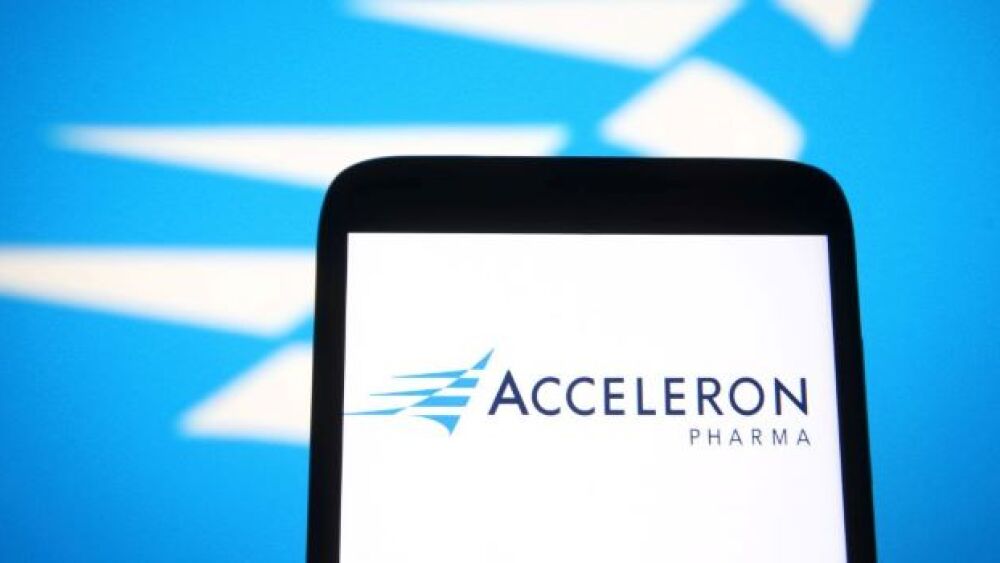Merck and Acceleron struck an $11.5 billion merger agreement, but before that, rare-disease focused Acceleron Pharma was wooed by multiple suitors, including pharma giant Bristol Myers Squibb.
Pavlo Gonchar/SOPA Images/LightRocket via Getty Images
Last month, Merck and Acceleron struck an $11.5 billion merger agreement, but before those two companies opted to walk down the aisle, rare-disease-focused Acceleron Pharma was wooed by multiple suitors, including pharma giant Bristol Myers Squibb.
A new report from Bloomberg details the rival offers from BMS and how close the rival company came to putting the proverbial ring on Acceleron’s finger. Citing unnamed sources “familiar with the matter,” Bloomberg noted that BMS was discussing a potential acquisition until the eleventh hour, but the asking price was more than the company wanted to pay. Instead, the source told the newsgroup that BMS sought to sweeten the deal by proposing a forgiveness of future royalties on Reblozyl, an anemia treatment for adult patients with beta thalassemia who require regular red blood cell (RBC) transfusions. That drug, approved in 2019, was developed in partnership with Celgene, which BMS acquired for $74 billion at the beginning of that year. Not only did BMS gain royalties from the sales of Reblozyl when it acquired Celgene, but the pharma giant also gained the 11% stake in Acceleron that Celgene owned.
In a filing with the U.S. Securities and Exchange Commission (SEC) earlier this week, the timeline of the various discussions Acceleron’s management had with Merck, BMS and other parties were made available. First reported by Bloomberg, Acceleron Chief Executive Officer Habib Dable reached out to a company in August that was identified only as “Party A,” informing its leadership that Acceleron had received an unsolicited takeover offer from Merck for $160 per share. Bloomberg’s source identified Party A as BMS. Dable asked BMS if it would be interested in making a pitch for Acceleron. According to the source, BMS was amenable to making a deal.
However, after Acceleron and BMS signed a confidentiality agreement that granted BMS access to Acceleron’s data, the larger pharma company stepped away from the table. Bloomberg reported that BMS was not impressed with Acceleron’s data for sotatercept, a Phase III pulmonary arterial hypertension (PAH) drug that was also being co-developed with Celgene. Sotatercept received Orphan Drug Designation from the U.S. Food and Drug Administration (FDA) in 2019. Should it be approved, sotatercept is seen as a complementary asset for Merck and its existing PAH pipeline.
Although BMS balked at acquiring Acceleron, the company proposed a plan that was an alternative to an outright acquisition. According to the filing, BMS said it would be willing to forgive royalties on the potential sale of sotatercept if the Acceleron would waive future royalties for Reblozyl. That was rejected by Acceleron. The company leadership said it would create a significant tax obligation and would also increase the company’s risk profile.
According to the SEC filing, even as Acceleron continued its discussion with BMS, Merck pressed its courtship and upped its initial offer of $160 per share to $175 per share.
As the two big pharma companies courted A, a third suitor was also waiting in the wings. This third company, referred to as Party C in the filing, had apparently expressed interest in Acceleron last year. When the company was being wooed by both Merck and BMS, Acceleron’s leadership reached out to Party C to see if that company was still interested, but the idea was nixed by the advisers to that third party company.
Merck upped its offer again to $180 per share, which was accepted by Acceleron. If sotatercept is approved, it will lessen the company’s dependence on its blockbuster cancer drug, Keytruda, which is on track to becoming the top-selling drug in the world and provides about half of Merck’s revenue stream. Analysts peg sotatercept sales at approximately $2 billion should it be approved.





